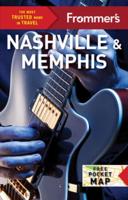Publisher's Synopsis
Home music producers now have access to a wide variety of software synthesizers, samplers, and FX devices on their computers -- devices that had previously been available only in expensive hardware forms. Although computer musicians often show a high degree of skill and expertise with the technology they use to produce their music, many mistakenly assume that this is all they need to produce quality tracks. Yet there is often a vital ingredient missing: a useful knowledge of the way the language of music actually works -- an understanding of the ingredients of music and how they are put together; what scales, chords, modes, and keys are; and the principles of arrangement, melody, and harmony. In other words, computer musicians may have learned how to use their instruments, but this does not necessarily mean that they know how to create professional-sounding music using those instruments. This book was written to help computer musicians grow in their knowledge of musical harmony, knowledge that is essential for the skilled creation of complex musical works. Topics include intervals, tonality and the key system, part writing, triads, tonic and dominant harmony, modulation, and modal interchange and harmony. Techniques are taught using the tools computer musicians are most familiar with. Rather than using a conventional score format, most of the materials are presented in the familiar piano roll format of computer music sequencing programs. For practice, the companion CD contains numerous short exercises that will considerably improve the musician's skill in the art of musical harmony.










